
Twin Peaks is an American mystery-horror drama television series created by Mark Frost and David Lynch. It premiered on ABC on April 8, 1990, and ran for two seasons until its cancellation in 1991. The show returned in 2017 for a third season on Showtime.
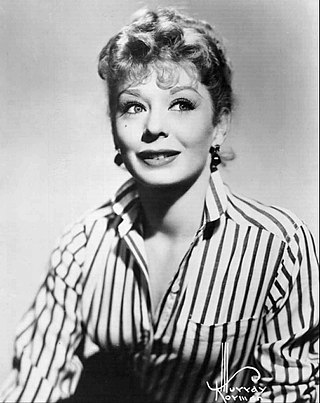
Gwyneth Evelyn "Gwen" Verdon was an American actress and dancer. She won four Tony Awards for her musical comedy performances, and she served as an uncredited choreographer's assistant and specialty dance coach for theater and film. Verdon was a critically acclaimed performer on Broadway in the 1950s, 1960s, and 1970s, having originated many roles in musicals, including Lola in Damn Yankees, the title character in Sweet Charity, and Roxie Hart in Chicago.

Jay and Silent Bob are fictional characters portrayed by American actors Jason Mewes and Kevin Smith, respectively. They appear in the View Askewniverse, a fictional universe used in most of the films, comics, and television programs written and produced by Smith.
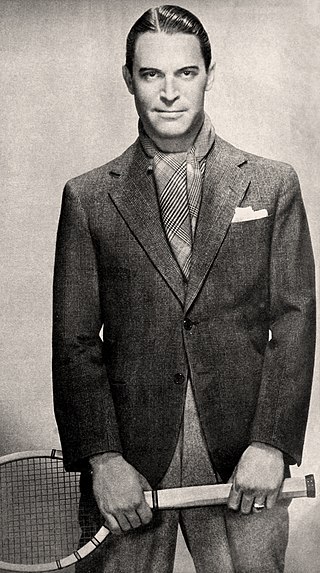
John Chester Brooks Morris was an American stage, film, television, and radio actor. He had some prestigious film roles early in his career, and received an Academy Award nomination for Alibi (1929). Morris is remembered for portraying Boston Blackie, a criminal-turned-detective, in the Boston Blackie film series of the 1940s.

Alison Elizabeth Larter is an American actress and former model. She portrayed fictional model Allegra Coleman in a 1996 Esquire magazine hoax and took on guest roles on several television shows in the 1990s. She made her film debut in Varsity Blues (1999), which was followed by the horror film House on Haunted Hill (1999). Her role as Clear Rivers in the Final Destination franchise (2000–2003) established her as a scream queen.
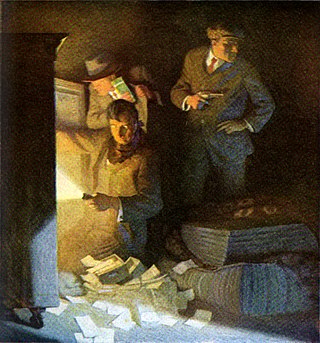
Boston Blackie is a fictional character created by author Jack Boyle (1881–1928). Blackie, a jewel thief and safecracker in Boyle's stories, became a detective in adaptations for films, radio and television—an "enemy to those who make him an enemy, friend to those who have no friend."
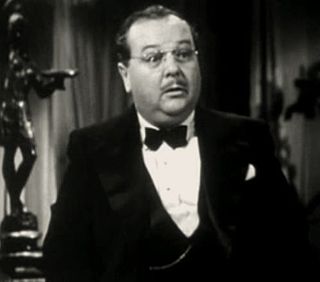
Lloyd Corrigan was an American film and television actor, producer, screenwriter, and director who began working in films in the 1920s. The son of actress Lillian Elliott, Corrigan directed films, usually mysteries such as Daughter of the Dragon starring Anna May Wong, before dedicating himself more to acting in 1938. His short La Cucaracha won an Academy Award in 1935.

Richard Lane, sometimes known as Dick Lane, was an American actor and television announcer/presenter. In movies, he played assured, fast-talking slickers: usually press agents, policemen and detectives, sometimes swindlers and frauds. He is perhaps best known to movie fans as "Inspector Farraday" in the Boston Blackie mystery-comedies. Lane also played Faraday in the first radio version of Boston Blackie, which ran on NBC from June 23, 1944 to September 15, 1944. Lane was an early arrival on television, first as a news reporter and then as a sports announcer, broadcasting wrestling and roller derby shows on KTLA-TV, mainly from the Olympic Auditorium in Los Angeles.

George E. Stone was a Polish-born American character actor in films, radio, and television.
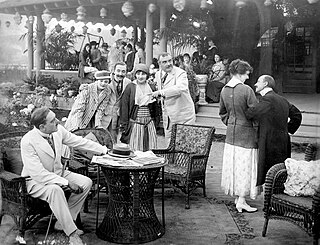
The New Adventures of J. Rufus Wallingford is a 1915–1916 American silent serial film produced by the Wharton Studio in Ithaca, New York, and starring Burr McIntosh and Max Figman. The serial is based on the character J. Rufus Wallingford, originating from the series of stories by George Randolph Chester.

Raffles is a 1930 American pre-Code comedy-mystery film produced by Samuel Goldwyn. It stars Ronald Colman as the title character, a proper English gentleman who moonlights as a notorious jewel thief, and Kay Francis as his love interest. It is based on the play Raffles, the Amateur Cracksman (1906) by E. W. Hornung and Eugene Wiley Presbrey, which was in turn adapted from the 1899 short story collection of the same name by Hornung.

The Dresden Dolls are an American musical duo from Boston, Massachusetts. Formed in 2000, the group consists of Amanda Palmer and Brian Viglione. The two describe their style as "Brechtian punk cabaret", a phrase invented by Palmer because she was "terrified" that the press would invent a name that "would involve the word gothic". The Dresden Dolls aesthetic exemplifies dark cabaret.

Meet Boston Blackie is a 1941 American mystery crime film directed by Robert Florey starring Chester Morris, Rochelle Hudson, Richard Lane. Morris plays Boston Blackie, a notorious, but honorable jewel thief. Although the character had been the hero of a number of silent films, this was the first talking picture. It proved popular enough for Columbia Pictures to produce a total of fourteen B movies, all starring Morris. The next film in the sequence was Confessions of Boston Blackie.
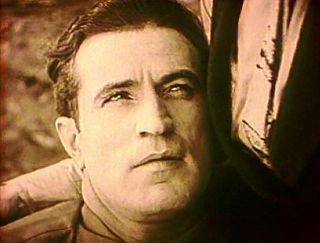
Bob Custer was an American film actor who appeared in over 50 films, mostly Westerns, between 1924 and 1937, including The Fighting Hombre, Arizona Days, The Last Roundup, The Oklahoma Kid, Law of the Rio Grande, The Law of the Wild and Ambush Valley.

The Face in the Fog is a 1922 American silent film produced by Cosmopolitan Productions and distributed by Paramount Pictures. It was directed by Alan Crosland and starred Lionel Barrymore as detective Boston Blackie. An incomplete print is preserved at the Library of Congress.

Boomerang Bill is an extant 1922 American silent crime melodrama film produced by Cosmopolitan Productions and distributed through Paramount Pictures. Adapted from a Boston Blackie short story by Jack Boyle, it was directed by Tom Terriss and stars veteran actor Lionel Barrymore. It is preserved incomplete at the Library of Congress and George Eastman House.

Through the Dark is a 1924 American silent mystery crime drama film directed by George W. Hill, and starring Colleen Moore and Forrest Stanley as the popular jewel thief and sometimes detective character Boston Blackie. The film's scenario, written by Frances Marion, is based on the short story "The Daughter of Mother McGinn" by Jack Boyle, which appeared in serial form in Cosmopolitan. The film was produced by William Randolph Hearst's Cosmopolitan Productions and distributed through Goldwyn Pictures.

The Poppy Girl's Husband is a 1919 American silent drama film directed by William S. Hart and Lambert Hillyer and written by Jules Boyle and C. Gardner Sullivan. The film stars William S. Hart, Juanita Hansen, Walter Long, Fred Starr, David Kirby and Georgie Stone. The film was released on March 16, 1919, by Paramount Pictures.

Boston Blackie's Little Pal is a 1918 American silent drama film, directed by E. Mason Hopper. It stars Bert Lytell, Rhea Mitchell, and Rosemary Theby, and was released on August 26, 1918.
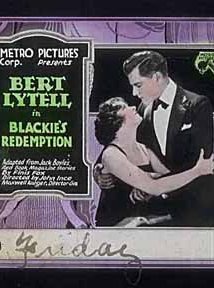
Blackie's Redemption, also known by its working title Powers That Pray, is a 1919 American silent drama film directed by John Ince. It stars Bert Lytell, Alice Lake, and Henry Kolker, and was released on April 14, 1919.




















